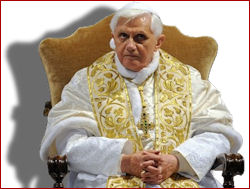The facts, as reported and as related in sterile prose, are simple enough.
Last Wednesday, June 17, a young man walked into the church congregation of Emanuel AME Church in Charleston, South Carolina, and sat through a prayer meeting. At about 9pm, he stood and opened fire on his unarmed, helpless victims. Nine people, ranging in age from 26 to 87, were shot and killed. Eight died on the scene, one died later in a hospital. Among the dead was the pastor, Clementa Pinckney. The murderer, now identified by the police as 21 year-old Dylann Roof, was able to reload five times during the massacre, which his reported words reveal as racially motivated. He has since been arrested.
What to make of it? How to make anything of it?
The incident can be approached from many important angles; I'll select the one I think least likely to receive much consideration. It is this: we cannot even begin to make sense of this, on any remotely satisfying level, apart from the God of the Bible, and the theology that His Word teaches us.
I'll do my best not to insult you with nuance and carefulness; I'll just be direct. As you'd expect.
How can we even describe this situation, how can we even begin to measure its shape and immensity, apart from God? What do we say of it? That it is a "tragedy"? Of course, to Christians, it is every bit of that. But to an evolutionist? To a materialist? To an environmental extremist? To a postmodern sofa-sitter? How can any of them, with any credibility, call it a "tragedy"?
- How could an evolutionist? What is the very engine that drives forward the development of species, if not the crushing of weaker members by the stronger? Is it a tragedy when a coyote "culls" a slow rabbit? Other than by emotional special-pleading, how could such a worldview even categorize this event as anything other than another step forward in the grand march of progress?
- How could a materialist? One bag of atoms interacted with nine bags of atoms. The atoms aren't even destroyed, just altered. Where's the tragedy? Where's the wrong that makes it a tragedy? What does wrong weigh? What's the atomic number of tragedy? What instrument measures moral outrage? Is it measured in feet, or in pounds?
- How could an environmental extremist? Aren't we constantly told that human beings are destroying our planet? People are the enemy, right? What is nine fewer, if not a step in the right direction? Perhaps the murderer is an enviro-hero, for reducing the "carbon footprint" in Charleston by many thousands of tons per year, going forward?
- And how could a postmodernist? Oh sure, to you and me, this is a tragedy. But that's only our perspective. The consistent PoMo — though such a creature is a cryptid — is in a conundrum. He may feel bad about the slaughter. But for him to describe the act as a crime or as a moral outrage – that means he has to judge the shooter by a standard the shooter plainly does not share. Should the PoMo have coffee with the shooter? Or propose a 5-year moratorium on discussing it, until he has had time to think it through?
- How could a pro-abortionist? It is reported Margaret Sanger's belief that black people were weeds to be eliminated, and abortion was one great way to weed the garden, so to speak. Abortion kills more black people yearly than any other single sort of event. Well (I speak as a fool) nine "weeds" were just plucked, to this mindset. Where's the minus?
 Of course all my observations would be as horrifying and insulting to adherents and proponents as they are inescapable. They would deny them, with outrage and conviction. You see, we don't want to think through our billowy proclamations. We want just enough "freedom" to avoid Jesus, Bible, and church; to sleep with whoever we want, do (or not do) whatever we want, and escape all guilt, reproach, or consequences.
Of course all my observations would be as horrifying and insulting to adherents and proponents as they are inescapable. They would deny them, with outrage and conviction. You see, we don't want to think through our billowy proclamations. We want just enough "freedom" to avoid Jesus, Bible, and church; to sleep with whoever we want, do (or not do) whatever we want, and escape all guilt, reproach, or consequences.But we don't want anyone continuing the lines of logical development one inch further than we draw them.
Only the Biblically-faithful Christian, studying his Bible and applying the resultant theology faithfully and not emotionalistically, can make full and fully-satisfying sense of this horrific event.
- Only the Biblically-faithful Christian can say that the lives of every person in that meeting were infinitely valuable, infinitely precious, because they were the lives of eternal beings created in the image of the infinitely valuable God (Genesis 1:26; 9:6).
- Only the Biblically-faithful Christian can say that the murderer had no right to take those lives as he did, and only the Christian can give a grounded solution as to what the law must do to do justice to the murderer, and why (Genesis 9:6; Romans 13:1ff.).
- Only the Biblically-faithful Christian can say that what the murderer did was — not unfortunate, not sad, not objectionable, not regrettable, not ill-advised, but — evil, wicked, sinful.
- Only a Biblically-faithful Christian can point the grieving to comfort, eternal comfort, by pointing them to Christ and His Gospel.
- Only a Biblically-faithful Christian can urge mourners to see and trust that God will completely avenge every drop of blood spilled in that church, either eschatologically on the person of the unrepentant murderer (Ps. 94:1; Rev. 21:8; 22:15), or retroactively on the person of His dear Son for repentant offenders (Isa. 53:6; Rom. 3:25).
- Only a Biblically-faithful Christian can expose the evil, indeed the absurdity, of racism, and can point to the one and only solution for it: a Biblical anthropology (Gen. 1:26-28; Acts 17:26) married to the Biblical Gospel (Col. 3:11; cf. Eph. 2:13-22).
- Only a Biblically-faithful Christian can speak truth to the murderer, facing him with the full evil of his crime, the full weight of eternal wrath and judgment he deserves from God, and the full offer of reconciliation and forgiveness that he can know through (and only through) repentant faith in Christ (cf. Acts 9:1, 13; 26:10; 1 Tim. 1:12-16).
- Only a Biblically-faithful Christian knows when and how to think and speak of forgiveness.
- Only a Biblically-faithful Christian can look with assurance to a day when we will dwell in a "new heavens and a new earth in which righteousness dwells" (2 Peter 3:13) — which will be brought in, not on a tide of social or biological evolution, or scientific advance, or abortive weeding, or endless legislation, but with the return, rule, and reign of Jesus Christ.
For the Biblically-faithful Christian knows there is no other way to do this atrocity the justice for which it cries out, and that there is no purer and better display of theological truth than that found in God's Word, the Bible. The Bible is the best theology I've heard in my life, or ever will hear. All thoughts and words — yours, mine, commentators', politicians', mourners' — can only be assessed truly by that standard.
This is the full implications of Sola Scriptura applied to the very depths of life. As it was meant to be.
[This post ricocheted into my mind from Todd Pruitt's fine post, Charleston and the Age to Come, and his observation that "the actions of the murderer cannot be adequately described in anything less that theological language."]












 he talk of the theological hall is not understood in the cottage; and common phrases, which reading people understand at once, are not understood by multitudes of people.
he talk of the theological hall is not understood in the cottage; and common phrases, which reading people understand at once, are not understood by multitudes of people.














 ur friends at
ur friends at  He was keen to assure them that "BioLogos exists in no small part to marginalize [belief in the historicity of the Genesis account] from the Church." Specifically, the BioLogos team have targeted the notion that Adam was a special creation—fashioned in God's own image rather than evolved from higher primates. "A fundamental part of our mission is to show that [the Genesis account of Adam] is not tenable," Falk solemnly (and somewhat fawningly) assured Dawkins.
He was keen to assure them that "BioLogos exists in no small part to marginalize [belief in the historicity of the Genesis account] from the Church." Specifically, the BioLogos team have targeted the notion that Adam was a special creation—fashioned in God's own image rather than evolved from higher primates. "A fundamental part of our mission is to show that [the Genesis account of Adam] is not tenable," Falk solemnly (and somewhat fawningly) assured Dawkins. 


 've said
've said 
 In fact, the most spectacular "signs and wonders" I have ever witnessed from charismatics in India are the same laughter and animal noises that were sweeping Western charismatic churches ten years ago. And those phenomena were imported to Indian churches from Western sources.
In fact, the most spectacular "signs and wonders" I have ever witnessed from charismatics in India are the same laughter and animal noises that were sweeping Western charismatic churches ten years ago. And those phenomena were imported to Indian churches from Western sources. xactly ten years ago this week I preached in our church's morning service. I can't remember if John MacArthur was ill or suddenly called out of town for some reason, but I remember being asked very late to fill in. I had about 24 hours to prepare.
xactly ten years ago this week I preached in our church's morning service. I can't remember if John MacArthur was ill or suddenly called out of town for some reason, but I remember being asked very late to fill in. I had about 24 hours to prepare. It being the first Sunday of 1999, I decided to preach an appropriately forward-looking message on Matthew 6:34 and its context: "Take therefore no thought for the morrow: for the morrow shall take thought for the things of itself."
It being the first Sunday of 1999, I decided to preach an appropriately forward-looking message on Matthew 6:34 and its context: "Take therefore no thought for the morrow: for the morrow shall take thought for the things of itself."













